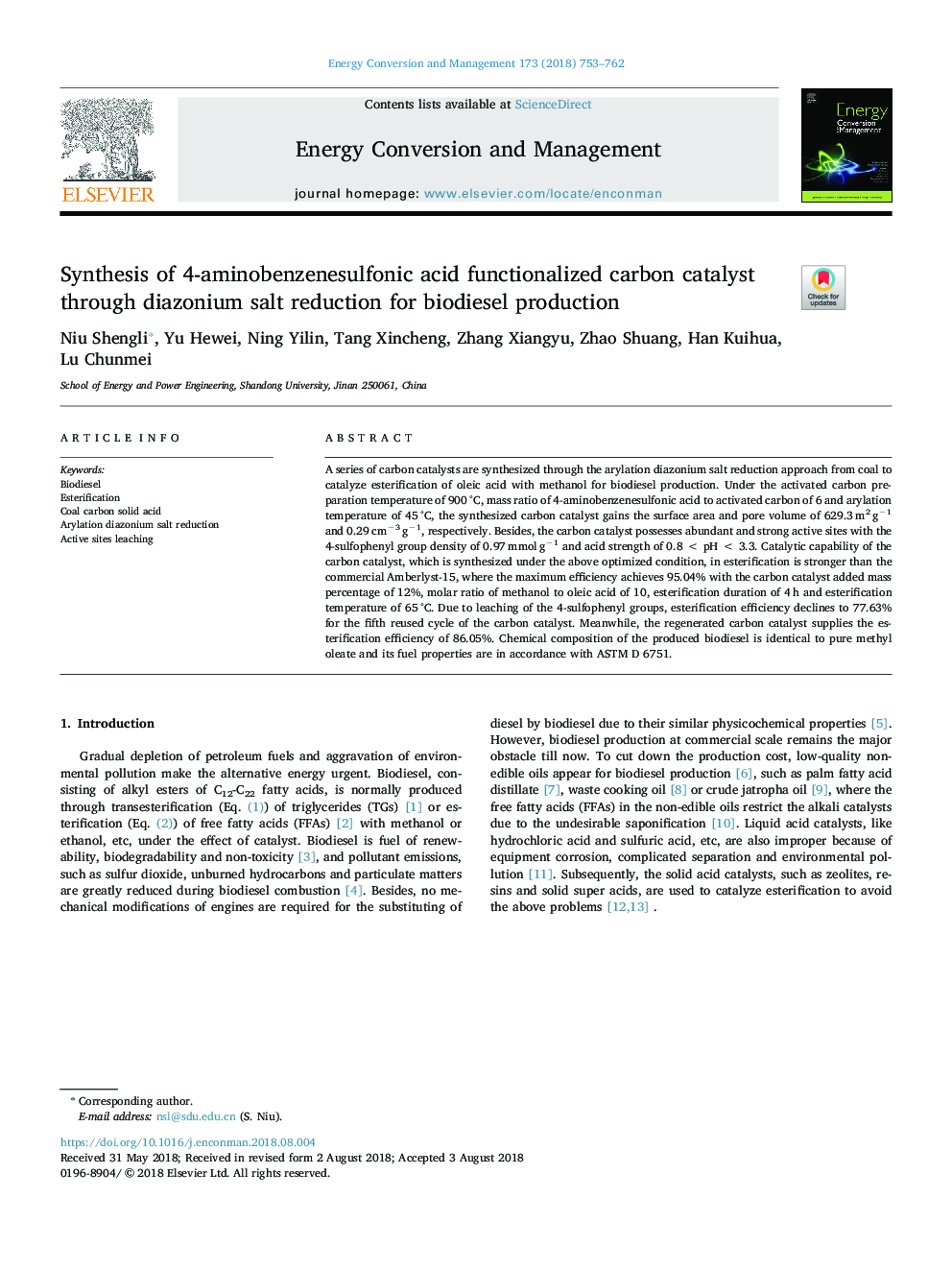| Article ID | Journal | Published Year | Pages | File Type |
|---|---|---|---|---|
| 7157833 | Energy Conversion and Management | 2018 | 10 Pages |
Abstract
A series of carbon catalysts are synthesized through the arylation diazonium salt reduction approach from coal to catalyze esterification of oleic acid with methanol for biodiesel production. Under the activated carbon preparation temperature of 900â¯Â°C, mass ratio of 4-aminobenzenesulfonic acid to activated carbon of 6 and arylation temperature of 45â¯Â°C, the synthesized carbon catalyst gains the surface area and pore volume of 629.3â¯m2â¯gâ1 and 0.29â¯cmâ3â¯gâ1, respectively. Besides, the carbon catalyst possesses abundant and strong active sites with the 4-sulfophenyl group density of 0.97â¯mmolâ¯gâ1 and acid strength of 0.8â¯<â¯pHâ¯<â¯3.3. Catalytic capability of the carbon catalyst, which is synthesized under the above optimized condition, in esterification is stronger than the commercial Amberlyst-15, where the maximum efficiency achieves 95.04% with the carbon catalyst added mass percentage of 12%, molar ratio of methanol to oleic acid of 10, esterification duration of 4â¯h and esterification temperature of 65â¯Â°C. Due to leaching of the 4-sulfophenyl groups, esterification efficiency declines to 77.63% for the fifth reused cycle of the carbon catalyst. Meanwhile, the regenerated carbon catalyst supplies the esterification efficiency of 86.05%. Chemical composition of the produced biodiesel is identical to pure methyl oleate and its fuel properties are in accordance with ASTM D 6751.
Keywords
Related Topics
Physical Sciences and Engineering
Energy
Energy (General)
Authors
Niu Shengli, Yu Hewei, Ning Yilin, Tang Xincheng, Zhang Xiangyu, Zhao Shuang, Han Kuihua, Lu Chunmei,
